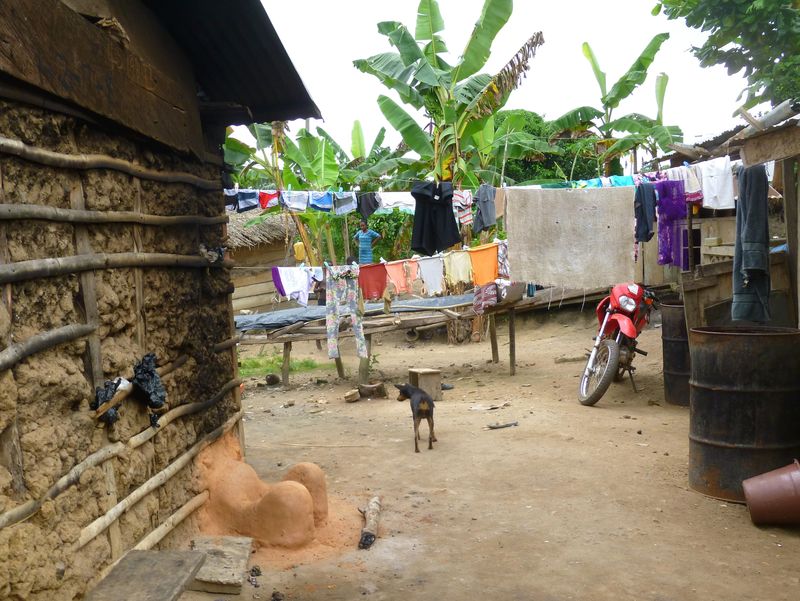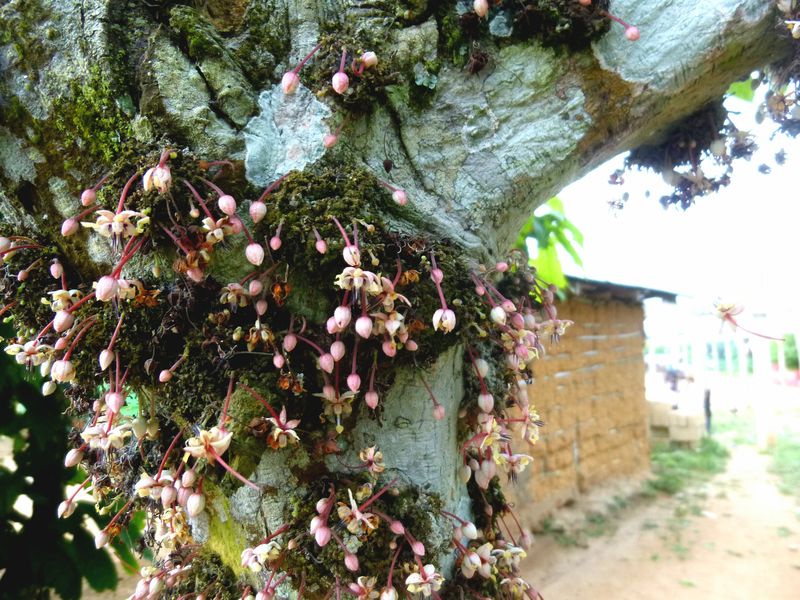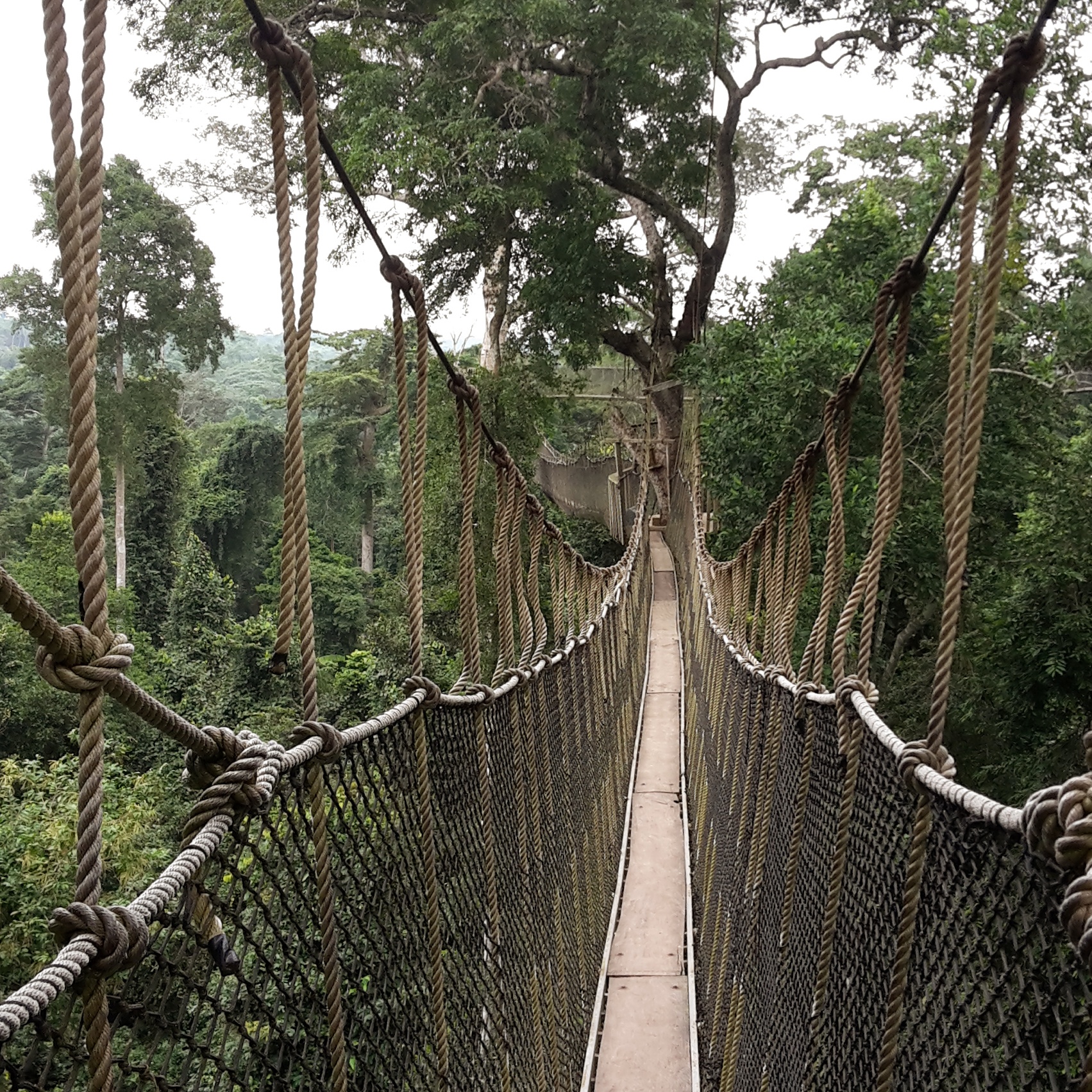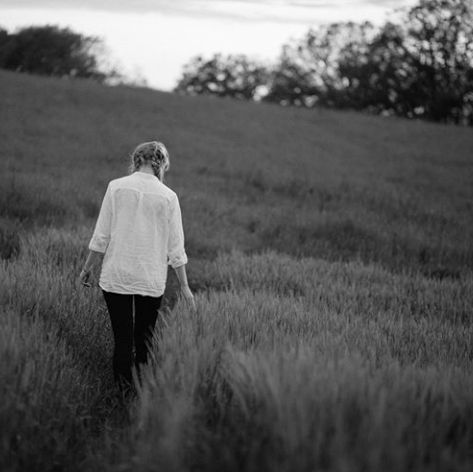Balancing Act
Afeaso was the second village of my research rounds. It is bigger than Brahabebome and grid-connected, though my room was not. I stayed in a housing complex with 8 rooms.
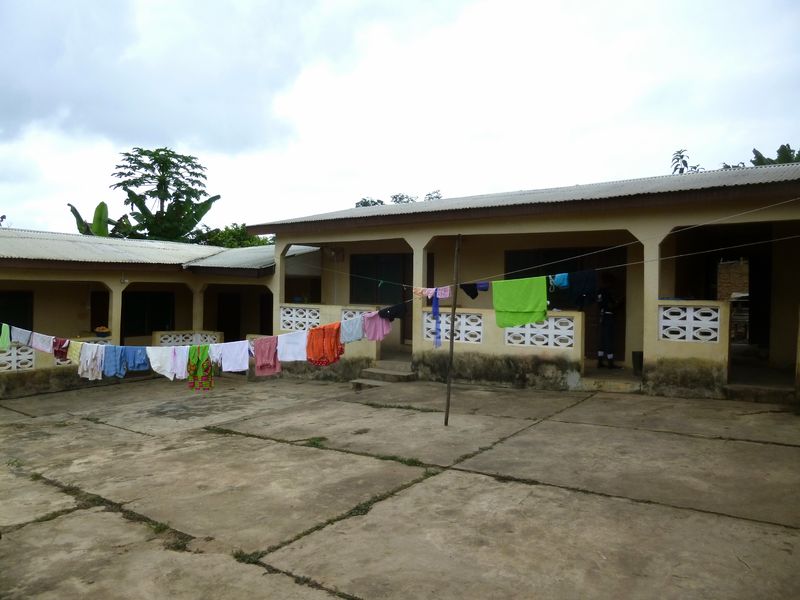
All others are used by teachers from the village's school and the one I was sleeping in is usually used as storage but has a mattress for guests. My nice neighbour, a young teacher at the local school, let me use her socket outside, so that I could at least charge my phone and camera when there was none of the frequently occuring blackouts. The camera is needed for my field work and my phone I need at least as watch and alarm clock since my wrist-watch stopped. Reception in this village is scarce. They have a transmitter mast which works only sometimes, but this one also only reinforces the normal network for phone calls and overrules the mobile internet reception. So for me, the tower is the enemy.
But I got used to not being connected to all the world, or just my family, at all times. This is also an experience that you rarely have in Germany. And it is probably a useful one. It makes you realise how addicted or reliant we get to these technologies: calls, whatsapp, google... The need to be informed at all times, to communicate the smallest and most unimportant events, to be able to look up online any word you don’t know or any place or timetable or weather predictions or whatsoever.
Retrospectively, it was actually nice to be isolated from the world sometimes. It let me settle down into myself and meditate about what is important. Sure, I could do that anytime, but in this kind of forced state of not being able to distract yourself with your phone and internet it was easier to get the mind off the world and focus on myself.
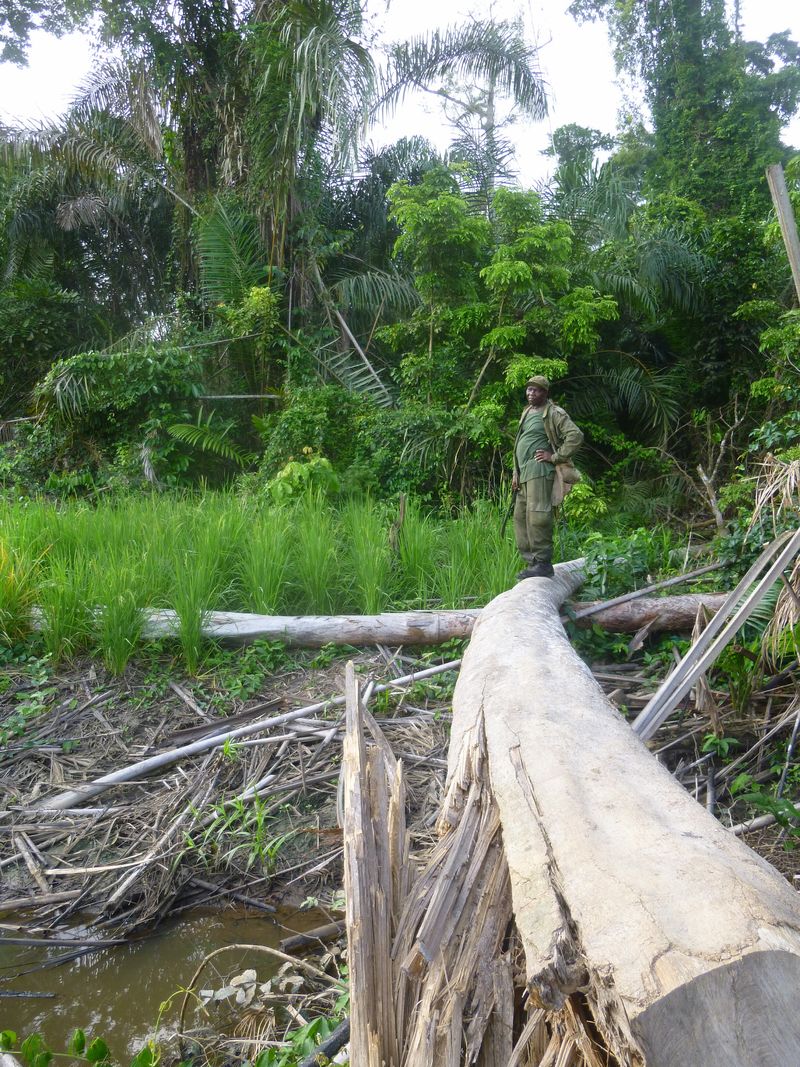
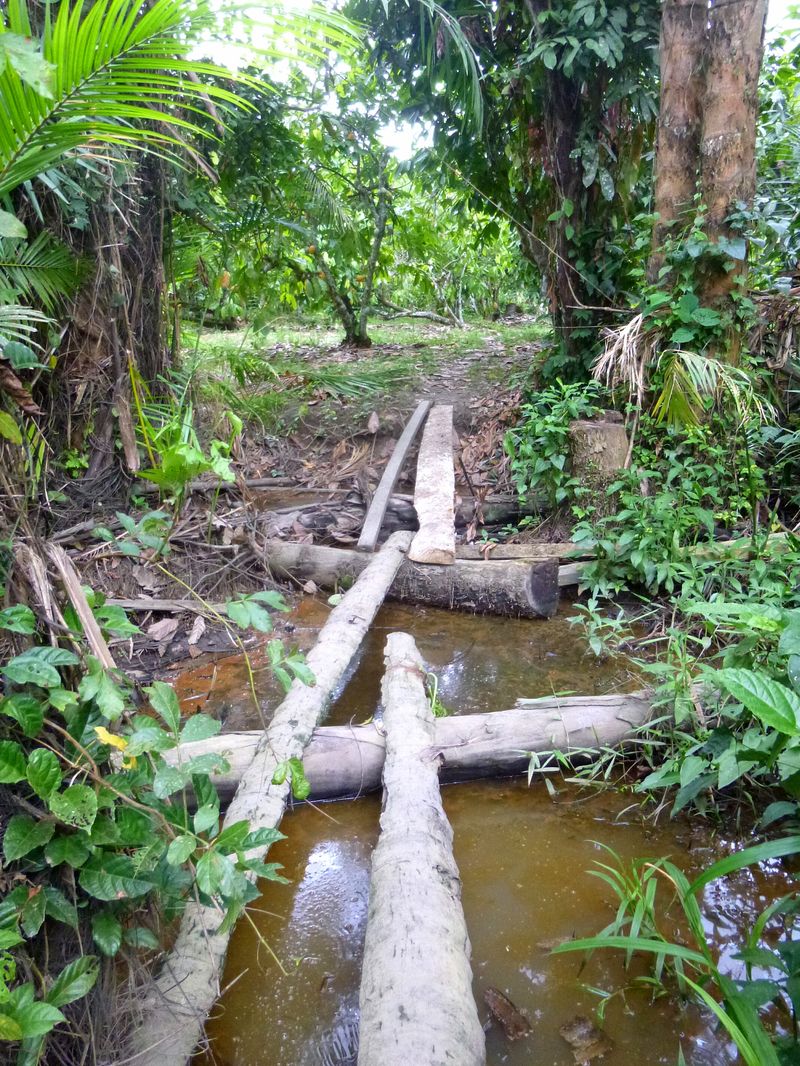
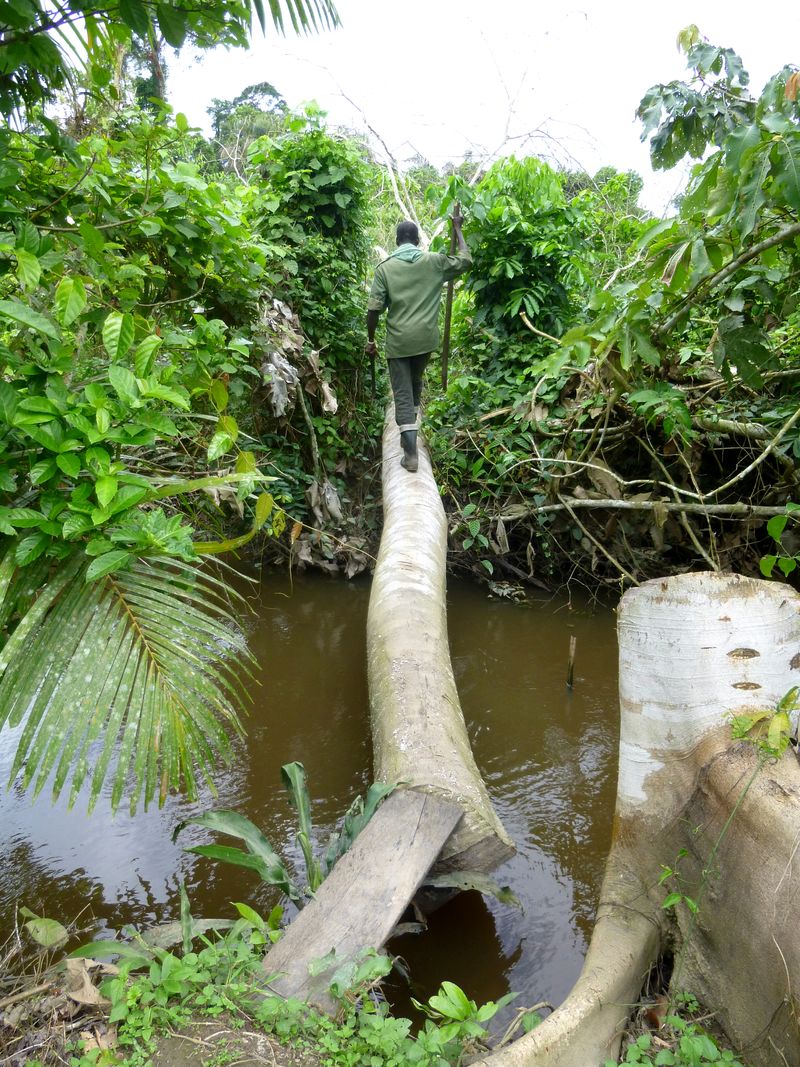
(This one was swinging slightly when you walked on it, the tree just hangs over the edge but is not stabilized)
I made it over all of them safely and without any problem but it's still an experience. And these are some of the walks that are made daily by the cocoa farmers here, with equipment and at certain times also with their harvest. It made me realise again how different the life of a farmer here is from one in Germany. I am aware that farming is a tough business anywhere in the world, but the challenges that I am coming across here seem to be somehow more basic.
As already mentioned, there is a school in Afeaso. It consists of two buildings, one built 15 years ago by some NGO and the other built by the people of the village around 5 years ago.
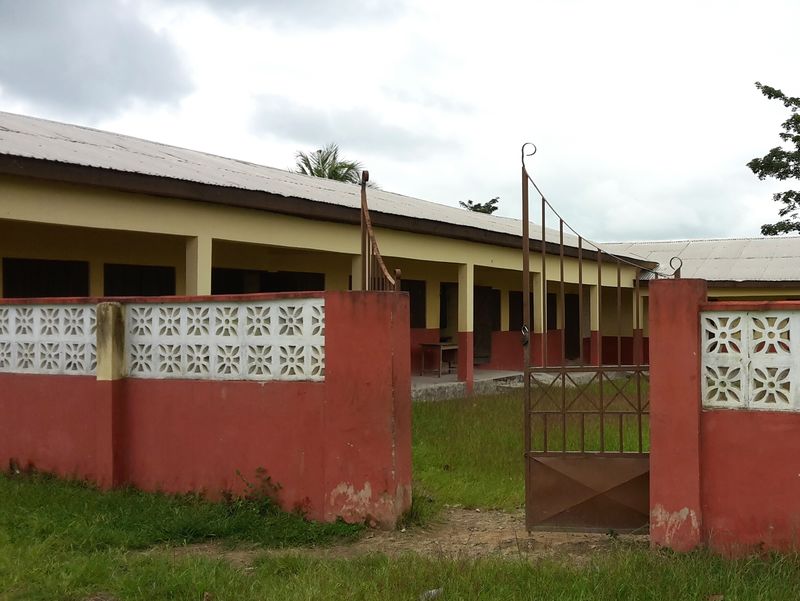
The difference is immense: The younger building starts to crumple, there are huge cracks in the facade and the cement on the floor is already decorated with many holes. The teachers are all coming here from the outside, none of them originates in the area. One of them was complaining to me about it but explained that they couldn't really complain to the villagers or ask them to mend the building because they would take it as offence against their work.
The teachers live all in the complex I was talking about earlier and most of them left on the weekends and during holidays for their hometowns. While they stayed in Afeaso the schoolkids helped them with everything: They brought them water, helped with the cooking and even the washing of their clothes. It was new to me to see teachers and students live in such entwined ways.
It opened my eyes again on how their perception of me is do different from my own and from my reality is like. But for them I am a rich white woman no matter if that's true in my country or not.
